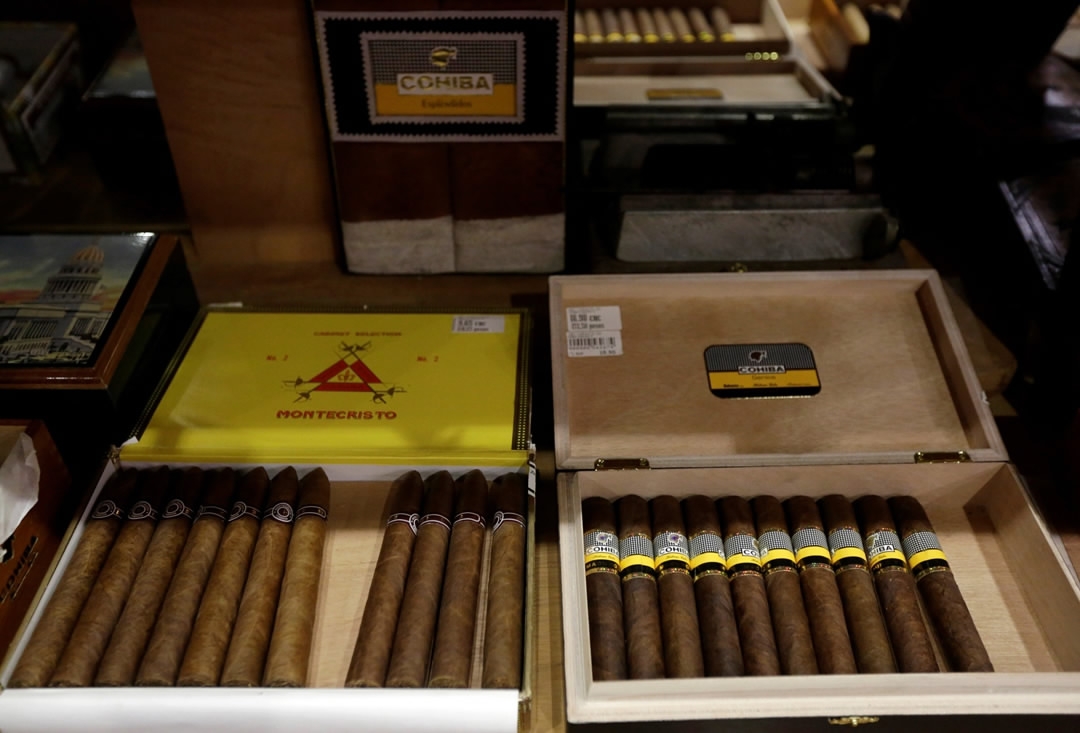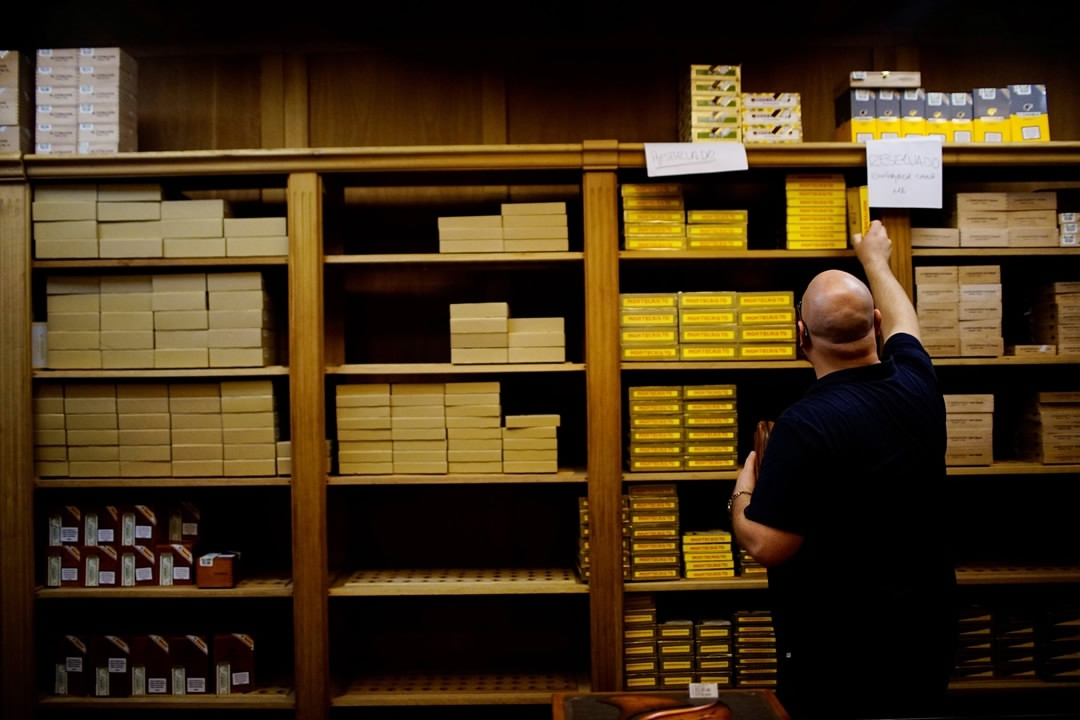
Business
08:42, 11-Aug-2017
Chinese company signs agreement with Cuba to boost cigar sales
CGTN America

China National Tobacco Corporation, the world's largest cigarette company, has signed an agreement in Havana aimed to boost Cuban cigar sales to the Asian country.
There is a growing demand for luxury goods in China including premium Cuban cigars. The accord will initially cover distribution and sales, but could later extend to production and technical cooperation.
China is already the third largest market in the world for Cuban cigars, behind Spain and France, with the premium Cohiba brand proving particularly popular, CGTN’s Michael Voss said.

Cuban cigars for sale are displayed at a hotel in Havana, Cuba on October 14, 2016. /VCG Photo
Cuban cigars for sale are displayed at a hotel in Havana, Cuba on October 14, 2016. /VCG Photo
At present, Cuban cigars are available for sale in eleven of China’s 23 provinces, but that could be about to change after both sides signed a letter of intent to increase cooperation and boost sales.
“This agreement between Cuba and China includes commercial, industrial and technical cooperation,” General Manager of China National Tobacco Corporation Ling Chengxing said.
There are more than 300 million smokers in China, according to the World Health Organization, almost a third of all the smokers in the world. And as people become more affluent, some are turning to cigars.
Cuba already accounts for half of all the cigars sold in China, which brings the Caribbean island about 70 percent of its tobacco revenue.
Both sides agree that there is an enormous potential for growth.

People open a box of cigars on display at the 19th Habanos Festival in Havana, Cuba on February 27, 2017. /VCG Photo
People open a box of cigars on display at the 19th Habanos Festival in Havana, Cuba on February 27, 2017. /VCG Photo
Habanos S.A. is a joint venture between Cuba’s state tobacco company and Britain’s Imperial Tobacco.
“Our initial intention is to get Cuban cigars into the market with greater force,” said Inocente Núñez. Núñez, co-president of the company.
“We will also collaborate in a distribution network to help educate Chinese smokers about the different types of Cuban cigars and tobacco.”
With this new accord, they are considering setting up a separate subsidiary with China National Tobacco Corporation, which has a virtual monopoly on all manufacturing and distribution of tobacco products in China.
12759km

SITEMAP
Copyright © 2018 CGTN. Beijing ICP prepared NO.16065310-3
Copyright © 2018 CGTN. Beijing ICP prepared NO.16065310-3